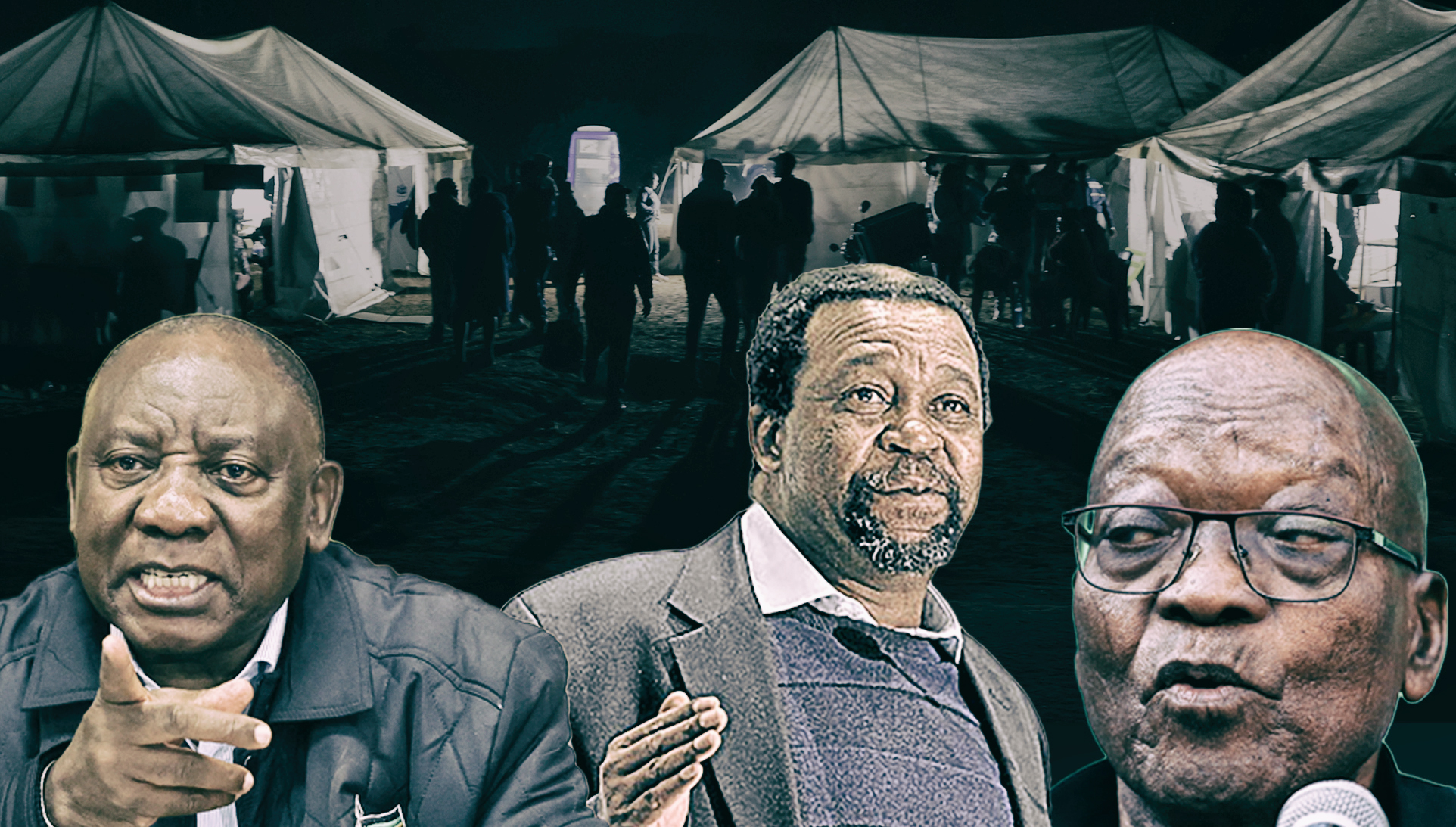The ANC failed to predict its slump to just 40% support in the 2024 election despite the writing being on the wall for years, says one of its leading lights, Joel Netshitenzhe.
In an excoriating 18-page election assessment, he says the party haemorrhaged votes because black people who still seek a liberation dividend lost confidence in the party. They either did not vote or they turned to the MK party, marking the entrenchment of an ethnic identity in voting patterns.
Netshitenzhe says the “liberation idea” still lives because 66% of parties originate from liberation movements or have a genesis in fighting apartheid and colonial relations.
“However, a significant bloc among them – including millions who abstained (from voting) – have lost confidence in the ANC as the pre-eminent organisational platform through which to attain this objective.”
More than 20 million eligible South Africans either did not register to vote or turn out on 29 May.
Read more: The big no-vote: over 11 million registered voters did not cast ballots in 2024 polls


Netshitenzhe’s most trenchant reflection is that despite 30 years of democratic transition, the election also entrenched racial and ethnic identification.
“What these outcomes underline is that, beyond the persisting black-and-white divide and the hierarchies in-between, the demon of narrow ethnic identity has not been slayed: it burrows quiescent below the surface, susceptible to opportunist exploitation.”
The ANC’s central organising thesis has always been committed to the idea of non-racialism and a national identity that outweighed a racial or ethnic identity. It hasn’t worked after 30 years, he says.
Regarded as one of the ANC’s foremost intellectuals, Netshitenzhe’s assessment of why the uMkhonto Wesizwe party emerged as the main story of Election 2024 will be heard as the ANC NEC meets this weekend for a hard look at how it sustained a bloody nose.
Dissecting MK’s rise
MK swept away the EFF to become South Africa’s third-largest national party and torpedoed both the ANC and IFP in KwaZulu-Natal to emerge as the largest provincial party. Even though it has not formed a government there, the party is politically dominant.
Netshitenzhe wrote that “the emergence of the MK Party as the largest party in KwaZulu-Natal, and its tallies in Mpumalanga and Gauteng”, were “broadly locations with an ethnic identity similar to that of its leader (former president Jacob Zuma)”.
Netshitenzhe attributes the MK juggernaut to five reasons.
First: Zuma’s popularity. Second: its promise of a “reverse takeover of the ANC”. Third: it leeched off the ANC in organisational networks and used “sleeper cells” in the party to stalk and win. Fourth: it roped in networks like taxi bosses, “madelangokubona” (construction mafia) and other “erstwhile beneficiaries of State Capture”. Fifth: it mouthed “radical economic transformation” rhetoric. And, sixth: it “topped it all with an ultra-conservatism meant to appeal to traditional leaders and communities”.
The Patriotic Alliance’s rise tracked a similar trajectory to that of MK, says the election assessment, but appealed to the Afrikaans-speaking coloured community across the three Capes and in Gauteng. Netshitenzhe says the DA also campaigned close to its “bird-in-the-hand” white constituency with additional support from the coloured and Indian communities.
As a political scientist, Netshitenzhe will also tell the NEC that South Africa’s political centre of gravity is left of centre, but only just. His assessment suggests that right-of-centre politics (where he places the DA, IFP and others) is catching up.
He characterises what passes as the far-left polity as populist by drawing a distinction between praxis and rhetoric in parties like the EFF and MK. They may call themselves socialist but they are not, either in the broad sweep of their policy positions or in the personal practices of their leaders.
Read more: Look Left, Look Right: What does ‘progressive’ mean in the coalition talks?
Policies of the unity government which now governs South Africa must be pro-poor, he concludes.
“The multiparty government should consciously avoid a political centre’s macabre dance of death: a cold elite rationality which is desensitised to mass aspirations and sentiment and vulnerable to populist denigration,” he will tell the NEC.
The ANC will hold its ordinary NEC meeting and NEC lekgotla from 1-6 August.
Netshitenzhe is the director of the Mapungubwe Institute for Social Reflection and wrote the paper under its auspices. DM





